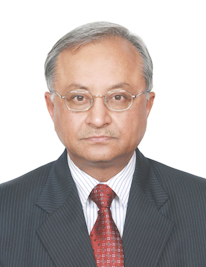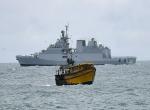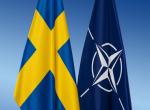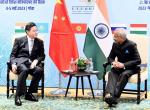Minister of State for External Affairs (MoS) Gen V.K. Singh’s official visit to the Democratic Peoples’ Republic of Korea (DPRK) on 15-16 May 2018 has attracted wide attention. A ministerial visit to North Korea was after a long gap of almost twenty years when the then Minister of State for Information and Broadcasting S. Mukhtar Naqvi had been to Pyongyang in 1998 for a film Festival. In April 2015, DPRK’s Foreign Minister had visited India and had extensive discussions with External Affairs Minister (EAM) Smt. Sushma Swaraj. The highest level visit from India was in 1992 when the then Vice President S.D. Sharma had visited North Korea.
MoS V.K. Singh was very well received in Pyongyang and had substantive meetings with the Vice President of the Presidium of DPRK’s Supreme Peoples’ Assembly, Kim Yong-dae, Foreign Minister Ri Yong- ho, Culture Minister Pak Chun-nam and Vice Foreign Minister Choe Hui-chol. According to Ministry of External Affairs (MEA) press release, the two sides had talks on political, regional, economic, educational and cultural cooperation between the two countries. Areas identified for future collaboration are vocational education, agriculture, pharmaceuticals and promotion of Yoga.
After the division of Korea in 1945 and the Korean War in 1950-53, India has had better relations with DPRK in the 1960’s and 70’s as compared to South Korea. Both India and North Korea are active members of the Non-Aligned Movement. India has a policy of diplomatic equality between the two Koreas and had established consular relations in 1962, and then full diplomatic relations in 1972 with both the Koreas simultaneously. India’s declared policy has always been in favor of peaceful re-unification of the Korean Peninsula. However, for starting the Korean War in 1950, India had voted for the UN Security Council resolutions declaring North Korea as the aggressor.
In the 1990’s, India-DPRK relations came under strain as evidence emerged of transfer of missile technology by DPRK to Pakistan in exchange of Uranium enrichment technology covertly supplied by Pakistani nuclear agency headed by A.Q. Khan. In fact, the Pakistani missiles Gauri and Shaheen are based on North Korean prototypes. Also in 1999, India had seized a North Korean freighter at Kandla Port which was carrying undeclared missile components to Karachi.
In this background, MoS Singh highlighted the threat from nuclear proliferation, in particular India’s concerns in the context of the proliferation linkages with India’s neighborhood. The DPRK side emphasised that as a friendly country, DPRK will never allow any action that would create concerns for India’s security. This is an important commitment and a positive sentiment for the future development of friendly co-operation between India and North Korea.
Over the years, India has been sending humanitarian assistance to DPRK, which has faced food shortages because of famine and natural calamities. India’s assistance has included blankets, rice, wheat, baby food etc. In 2011, India had donated rice worth US$ 1 million to North Korea through the World Food Program. The DPRK authorities have expressed their gratitude for India’s humanitarian assistance. In 2005, North Korea had gifted goods worth $30,000 to the tsunami victims in India.
The United States has been unhappy that India has been the second largest trading partner of DPRK after China. India-DPRK trade was $130 million in 2016-17, down from $209 million in 2014-15. India exported oil meal, cotton yarn, machinery etc. and imported iron and steel among other things from North Korea. The increasing UN sanctions in the last three years in response to DPRK’s repeated nuclear and missile tests have made it more difficult to trade with North Korea. However, if economic sanctions against North Korea are eased in the coming months after the Trump-Kim summit, there would be a good market for Indian products like leather shoes, bicycles, garments, utensils etc.
In April 2017, the UN Security Council had imposed severe sanctions against North Korea and in compliance India has banned all trade with DPRK except for food and medicine. Last year there was considerable pressure by the Trump administration on India to dilute its already small diplomatic presence in Pyongyang. However, during a visit by the then Secretary of State Rex Tillerson in October last year, EAM Smt. Sushma Swaraj strongly conveyed India’s stand and the benefits of India keeping its channels of communications open with the North Korean regime. It needs to be noted that there have been regular Foreign Office consultations between India and North Korea at the level of Secretary (East) and North Korean Deputy Foreign Minister even during the period of relative isolation of North Korea.
India and North Korea have regular cultural exchanges under the 1976 Cultural Agreement. The Indian Council of Cultural Relations periodically sends cultural troupes to North Korea. India has also been participating in the biennial Pyongyang International Film Festival. Koreans like Indian feature films of Bollywood as well as from regional cinema. India annually offers 15 scholarships to North Korea under India’s Technical and Economic Cooperation (ITEC) program. This is fully utilised and has generated a lot of goodwill for India among the people of North Korea. The 40th Anniversary of the establishment of diplomatic relations between India and DPRK was celebrated in both countries in 2013 with several cultural programs.
The Korean Peninsula is on the verge of a historic transformation from Armistice to a Peace Treaty and from a nuclear hotspot to a de-nuclearised region. President Moon Jae-in and Chairman Kim Jong-un have already come to a better understanding for future bilateral peace and co-operation following their historic summit on 27 April. Preparations are now on for the proposed summit meeting between US President Donald Trump and North Korean leader Kim Jong-un scheduled for 12 June in Singapore. If North Korea comes out of its self-imposed isolation, India would be willing to forge a deeper political, strategic and economic relationship.
There is some speculation in the international media whether the timing of the MoS’s visit signifies any role that India might be playing in the ongoing negotiations between the relevant parties to stabilise the situation on the Korean Peninsula. In any event, the visit of MoS V.K. Singh is timely to get a first-hand account from North Korea on the political and strategic developments in the region and to assure the North Korean leadership of India’s goodwill and support to that endeavor.
(The author is a former Ambassador to South Korea)
(The paper does not necessarily represent the organisational stance. The author certifies that the article/paper is original in content, unpublished and it has not been submitted for publication/web upload elsewhere, and that the facts and figures quoted are duly referenced, as needed, and are believed to be correct.)
Image Source: https://www.japantimes.co.jp











Post new comment